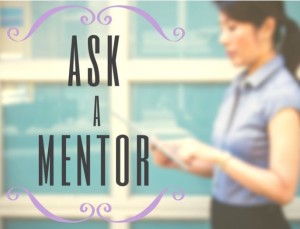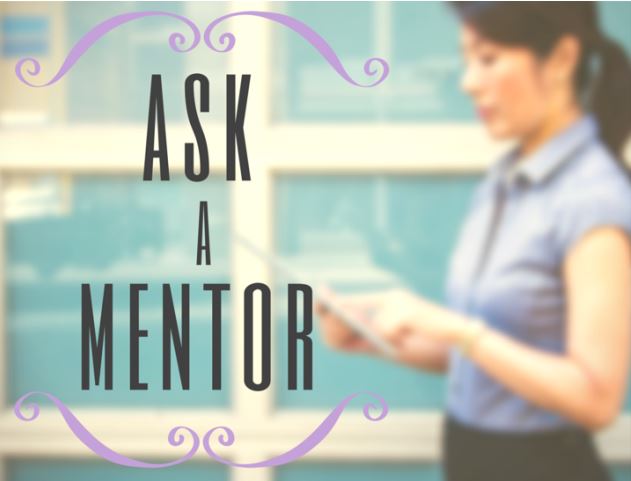Compiled and edited by Julie Tereshchuk.

Dear Mentors,
I’ve been connected with a mentor through the WCA Mentor Program. Any tips on the dos and don’ts of mentee etiquette? As a first timer, I want to be sure I’m not only striking the right professional tone as a mentee but also preparing myself to contribute as a mentor in the future.
Yours,
Ms. New Mentee
Dear Ms. New Mentee,
Great question! And it prompted a lot of responses from our mentors. Read on…
Susan Lahey says, “I would rather empower someone to find the path that’s right for them than give them a path. Bottom line: Mentees should come ready to work on their stuff. I’ll share resources, make introductions and suggestions, offer advice from my experience, but they have to be ready to dig into their own goals.
Sandra Kleinsasser says, “As a mentor, I take our relationship seriously, and I would like to think that a mentee approaches our relationship with a professional attitude. To me, that that means replying to emails in a timely manner (next business day), confirming appointments and following up when actions are agreed upon. Of course, you are free to decide that my advice isn’t valuable, but please acknowledge that my time is. A follow-up email or note of thanks is ALWAYS appreciated.”
Jenny Magic says, “Ask good questions if you truly want to grow. Ideas include:
- What habits or mannerisms have you observed that might be holding me back?
- Is there a path you see for me that I might not be considering?
- What skills or talents would be most helpful for me to learn or improve?
- What do you see as my strongest asset?
Often a mentor has some great ideas that will propel a mentee forward, but it can be hard to gently guide someone if they don’t open themselves up to hear the feedback.”
Julie Wickert says, “The #1 rule for mentee etiquette is to appreciate your mentor for genuinely wanting to help you move forward in your career. Show up – on time – ready to work, listen and maybe try some new things. Keep your mentor appraised of what is resonating for you, how you’re acting on it and what results you’re seeing. And do your homework!”
Last, but by no means least, Maura Thomas says,
- “Do come prepared with questions and what you hope to get out of your mentor relationship.
- Don’t expect the mentor to take the lead. Be proactive about making your next appointment, or not, but don’t expect the mentor to chase you down about getting together.
- Do plan to report back from the previous meeting. Did you implement your mentor’s suggestions? If not, why not? If so, how did it go?
- Don’t just fade away: when you feel that the existing relationship has run its course, let the mentor know.
- Do capture your stories for the (anonymous) “What happened next” section of the newsletter.”
Got your own career conundrum you’d like advice on? Then sign up for the WCA mentor program. It’s free to members!
- In Memoriam: Pam Baggett-Wallis - February 5, 2024
- Anne Lasseigne Tiedt, APR - January 6, 2024
- Cindy Friedman - December 6, 2023

